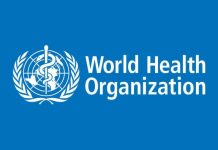Following the recent breakthrough recorded in the cure of a baby born with HIV by scientists in the United States, the Pharmaceutical Society of Nigeria (PSN) Lagos branch has called for the modification of the discovery, stating that if the techniques will be extrapolated on adults, that the results might not be the same.
Speaking with Pharmanews in an exclusive interview in his office, chairman, Lagos State PSN, Pharm. Akintunde Obembe, hailed the researchers for the rigorous work and the accomplished feat. He said it is an improvement from the cases he had heard of so far, and also implored them to further research into the processes, so that in the nearest future, adult patients can be beneficiaries of such breakthroughs.
“But be that as it may, it is an improvement from what we can see, however, we still implore the scientists to further research this breakthrough, so that it can be extended to adults. I believe we still need to do some modification on this breakthrough,” he stated.
Also, the Nigeria Medical Association (NMA) has called on Nigerian governments and relevant institution of health, particularly the National Agency for the Control of HIV/AIDS (NACA), to invest more in research aimed at discovering a global cure for HIV/AIDS.
This was contained in a statement made available to news men by its chairman, Dr. Osahon Enabulele. The association praised the efforts of the research team responsible for the discovery of the possible “functional” cure for the pandemic, and called for the encouragement of similar research locally to enable Nigeria join the league of nations around the globe who are finding solutions to human difficulties.
NMA said it has already directed its research committee to study the findings of the US research team, with a view to repeating the same feat in Nigeria.
The statement reads in part: “The Nigerian Medical Association has directed its Research committee as well as its HIV/AIDS Committee to deeply understudy the research finding with a view to replicating similar research studies in Nigeria, in collaboration with relevant research institutions, Universities and the National Agency for the Control of HIV/AIDS (NACA)”.
Asked about his opinion, as regards the claims of Professor Isaiah Ibeh, dean of Basic Medical Sciences, University Of Benin, on a new drug he claims to cure HIV/AIDS, Obembe said he monitored the incidence very well, and came to terms with the Vice-Chancellor for disapproving the claims, because it did not follow the scientific procedures for validating new findings.
He noted that the process the discoverer followed was not scientific enough; and that for any discovery to be generally accepted, it must follow the laid down procedures for verification. It is when all these processes have been followed holistically, that one can be sure of the claims of such discovery.
Obembe therefore urged all stakeholders in the health sector in Nigeria to throw their weight behind such noble achievements, by researching into the things that can improve the health of our people, which will thereafter lead to a healthy people and a healthy nation.
Also speaking on the issue of Mobile Authentication Service (MAS) project, he argued that the incidence of NAFDAC giving pharmaceutical companies an ultimatum to comply with the policy does not come into play, because the project is fraught with many logistics problems, which pharmaceutical companies have not been finding easy to deal with.
“Towards the end of year 2012, we were reliably informed that NAFDAC came out with a fiat that all pharmaceutical companies that are dealing in anti-malaria and antibiotics must key into this service with the time given to them expiring by the end of the year 2012 for anti-malaria, while those with antibiotics must comply before the end of March 2013”.
He further explained that any issue that has to do with drugs must painstakingly be addressed in the interest of the people, because more than 65 per cent of the citizens of the country attend clinics for malaria treatment.
“Being a common ailment, one would have expected the regulators to consider all that has to do with the availability, cost implication on the pocket of our people and all other associated difficulties that the manufacturers and importers of these medicines will face”.
The chairman has called on the government to intervene in the matter and instruct the regulatory agency involved to halt the process and substitute it with a better method of checking out fake products.











sildenafil without doctor prescription generic pills
tadalafil 40 mg from india: http://tadalafilonline20.com/ tadalafil daily use
sildenafil vs tadalafil – site tadalafil 5 mg